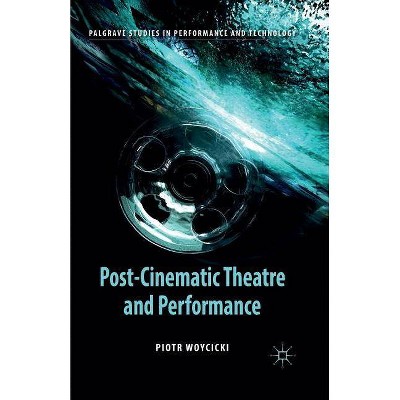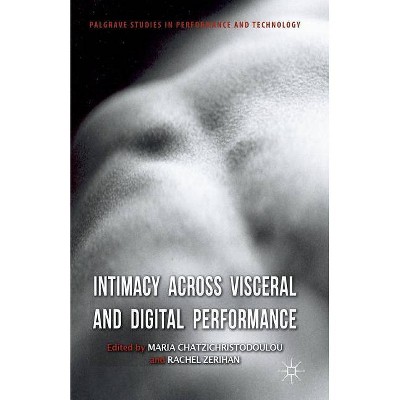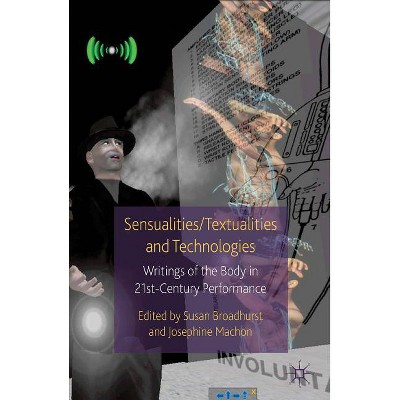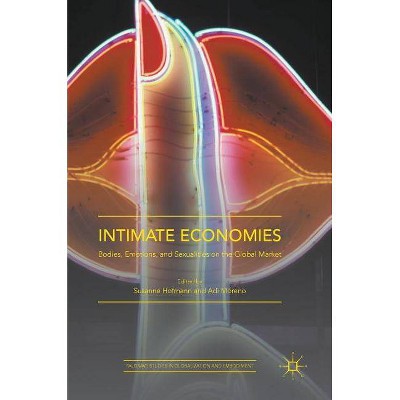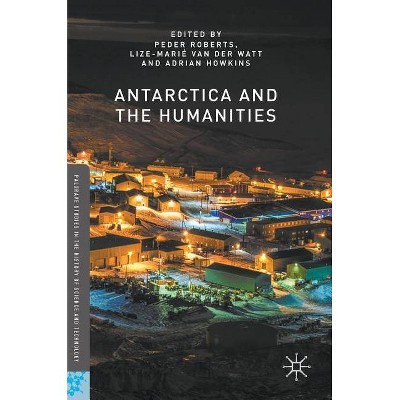Immersive Embodiment - (Palgrave Studies in Performance and Technology) by Liam Jarvis (Paperback)
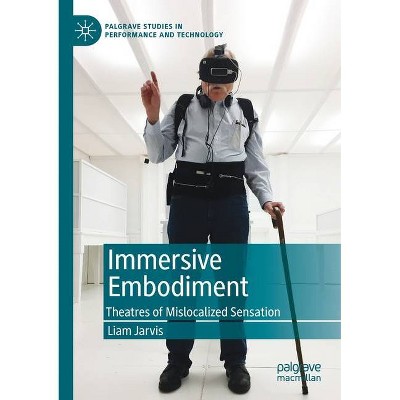
Similar Products
Products of same category from the store
AllProduct info
<p/><br></br><p><b> Book Synopsis </b></p></br></br>This book offers a wide-ranging examination of acts of 'virtual embodiment' in performance/gaming/applied contexts that abstract an immersant's sense of physical selfhood by instating a virtual body, body-part or computer-generated avatar. Emergent 'immersive' practices in an increasingly expanding and cross-disciplinary field are coinciding with a wealth of new scientific knowledge in body-ownership and self-attribution. A growing understanding of the way a body constructs its sense of selfhood is intersecting with the historically persistent desire to make an onto-relational link between the body that 'knows' an experience and bodies that cannot know without occupying their unique point of view. The author argues that the desire to empathize with another's ineffable bodily experiences is finding new expression in contexts of particular urgency. For example, patients wishing to communicate their complex physical experiences to their extended networks of support in healthcare, or communities placing policymakers 'inside' vulnerable, marginalized or disenfranchised virtual bodies in an attempt to prompt personal change. This book is intended for students, academics and practitioner-researchers studying or working in the related fields of immersive theatre/art-making, arts-science and VR in applied performance practices.<br><p/><br></br><p><b> From the Back Cover </b></p></br></br>This book offers a wide-ranging examination of acts of 'virtual embodiment' in performance/gaming/applied contexts that abstract an immersant's sense of physical selfhood by instating a virtual body, body-part or computer-generated avatar. Emergent 'immersive' practices in an increasingly expanding and cross-disciplinary field are coinciding with a wealth of new scientific knowledge in body-ownership and self-attribution. A growing understanding of the way a body constructs its sense of selfhood is intersecting with the historically persistent desire to make an onto-relational link between the body that 'knows' an experience and bodies that cannot know without occupying their unique point of view. The author argues that the desire to empathize with another's ineffable bodily experiences is finding new expression in contexts of particular urgency. For example, patients wishing to communicate their complex physical experiences to their extended networks of support in healthcare, or communities placing policymakers 'inside' vulnerable, marginalized or disenfranchised virtual bodies in an attempt to prompt personal change. This book is intended for students, academics and practitioner-researchers studying or working in the related fields of immersive theatre/art-making, arts-science and VR in applied performance practices.<p/><br></br><p><b> About the Author </b></p></br></br><b>Liam Jarvis</b> is a researcher, theatre maker and Senior Lecturer at the University of Essex, UK. Since 2007, he has been co-director of Analogue, whose work has toured the UK and Europe. His research and teaching have focused on immersion, embodiment and contemporary participatory practices in (post)digital culture. He has published numerous book chapters and articles in journals such as <i>Performance Research</i> and the <i>International Journal of Performance Arts and Digital Media</i>. He is currently co-convener of the Intermediality in Theatre & Performance Working Group at the International Federation for Theatre Research (IFTR) and a board member for Theatre-Rites.
Price History
Price Archive shows prices from various stores, lets you see history and find the cheapest. There is no actual sale on the website. For all support, inquiry and suggestion messages communication@pricearchive.us
